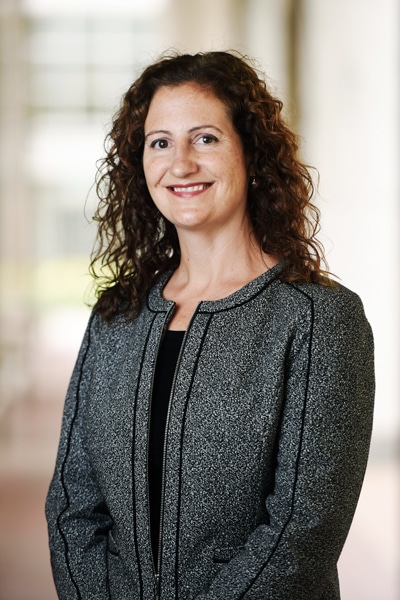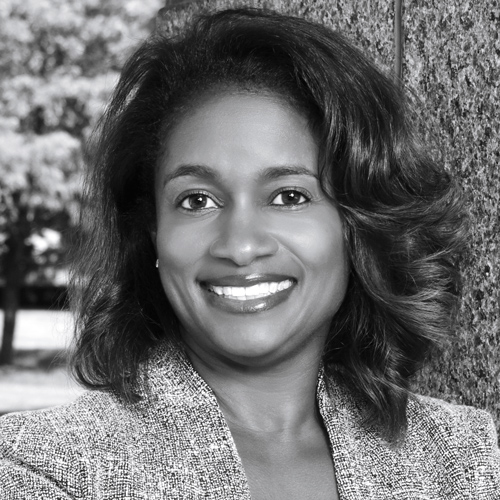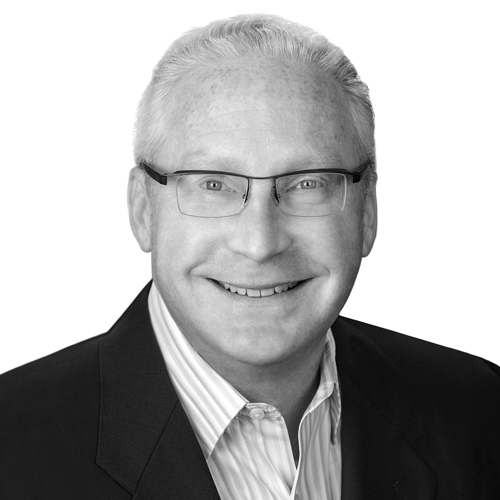Say “Mayo Clinic” almost anywhere, and most people will know that you are referring to one of the world’s best-known healthcare brands. The institution is one of the largest healthcare providers, offering a number of services that—though they get less press than its hands-on, team-based model of patient care—make a big difference to the health and well-being of patients around the globe. One of those services is clinical laboratory testing, and Sharon Zehe is part of the team charged with bringing those laboratory services’ best practices to other parts of the world—and to the new frontier of personalized medicine.
Mayo Medical Laboratories (MML) is a for-profit arm of Mayo Clinic that performs everything from basic blood tests to cutting-edge genomics testing. The global reference laboratory operates within Mayo Clinic’s Department of Laboratory Medicine and Pathology and provides clinical laboratory testing to support healthcare systems, hospitals, specialty clinics, and other clinical laboratories—currently about four thousand clients in more than seventy countries. Zehe oversees MML’s business growth around the world and stays abreast of trailblazing technology in the laboratory medicine industry. “MML is our outward-facing laboratory, performing testing for medical groups from around the globe,” explains Zehe, the vice president of business affairs. “We also provide laboratory services for millions of patients who come to Mayo Clinic every year through our Department of Laboratory Medicine and Pathology.”

Zehe is in charge of both sides of the business, overseeing regulatory and compliance issues and participating in business strategy and outside collaborations. “In this role, I function as more than just a lawyer,” she says—though that is how she began her career in healthcare. A native of Wisconsin, Zehe worked in human resources before earning her law degree from William Mitchell College of Law, now called Mitchell Hamline School of Law, in St. Paul, Minnesota. Zehe got to know Mayo Clinic through outside counsel work, and when an opening came up to support the laboratories, she applied for and was offered that position. Zehe came in as a business lawyer in 2004. “They originally needed help with just contracting and business strategy, but over the years, my role has grown to support all the needs of both the external and internal practices,” she says.
Zehe’s current top-line challenge is bringing laboratory best practices to bear as Mayo expands its model of care to other parts of the world. Currently, physicians and medical clinics send samples to Mayo’s reference laboratory, which is headquartered in Rochester, Minnesota, for testing. “We have a fairly significant footprint in the Middle East, South America, and Mexico,” she says. “We are not as big in Europe or Asia, but we are trying to grow there.” But in those and other parts of the world where it is impractical or illegal to send samples to the United States, Zehe is helping to set up collaborations with facilities in those countries. “We want to bring the Mayo testing model to these healthcare providers and work with their physicians and scientists to show them how we do it here,” she says. The team is also in discussions with facilities in Canada and South America, but they are not as far along in the process as Europe and Asia.
Mayo has also developed a Center for Individualized Medicine to advance the science of genomics testing to create personalized treatment plans for each patient’s particular disease genotype. “The big question is, ‘How do we take each individual’s genetic makeup and customize treatment for that person so it’s more effective?’” Zehe says. One such collaboration involves the Baylor College of Medicine and OneOme in the RIGHT 10K study to sequence seventy-six pharmacogenes samples from ten thousand patients who receive all of their healthcare at Mayo Clinic. Results and an interpretive report will be loaded into each patient’s EMR to improve healthcare by using already-installed clinical decision support alerts for nineteen different drug-gene pairs and evaluating the clinical and fiscal impact of those alerts. “The RIGHT 10K study is working to help providers understand what pharmacogenomics is,” Zehe says. “Pharmacogenomics can be quite big, and to ask physicians to stay on top of all this is overwhelming. This study hopes to help educate physicians and pharmacists on how a patient’s genome affects how certain prescription medications can be prescribed to ensure the greatest effectiveness.”
“I want to keep an open mind that what was done before is not necessarily the way we move forward in the future.”
Zehe’s challenge is to help facilitate these strategic advancements while making sure the organization remains flexible to compassionately and respectfully care for patients and respond to the changing industry. “We have the practice side of Mayo, taking care of patients every day, and that never wavers. That part is huge, and it’s the reason we are here,” she says. “Our physicians see what patients need, and they tell us what the laboratory needs to develop to support these patients.”
Patient privacy is also top of mind. “My soapbox on personalized medicine is on protecting patient privacy,” she says. “To perform research on the way our environment, our lifestyles, and our genes affect our health, organizations need to collect a significant amount of information. Mayo does a great job of letting patients know how this information may be used.”
With all of these different projects and collaborative processes, Zehe truly appreciates the pace and variety of her job. “Some of these collaborations move extremely fast,” she says. “Different parts of the world have different issues to address. I really enjoy the learning experience of it.” In addition, she says that the law is far behind where medicine is. “It is an interesting dynamic to say, ‘Here are the legal parameters, but they haven’t caught up with how laboratory tests or precision medicine works now.’ But we have to work with that going forward to always do the right thing for patients.”
One of Zehe’s goals, in fact, is to stay on top of genetics and personalized medicine. The two areas are really intertwined as one, she says. Zehe’s other goal, concerning overseas growth, is to find creative new ways to strike collaborative business deals. “I want to keep an open mind that what was done before is not necessarily the way we move forward in the future,” she says.
OneOme’s RightMed® pharmacogenomic test, codeveloped by Mayo Clinic, helps providers improve patient care by using a patient’s DNA to predict how he or she may respond to medications. The RightMed test has the potential to limit adverse reactions and improve the economic efficiency of healthcare systems. Learn more at oneome.com.


